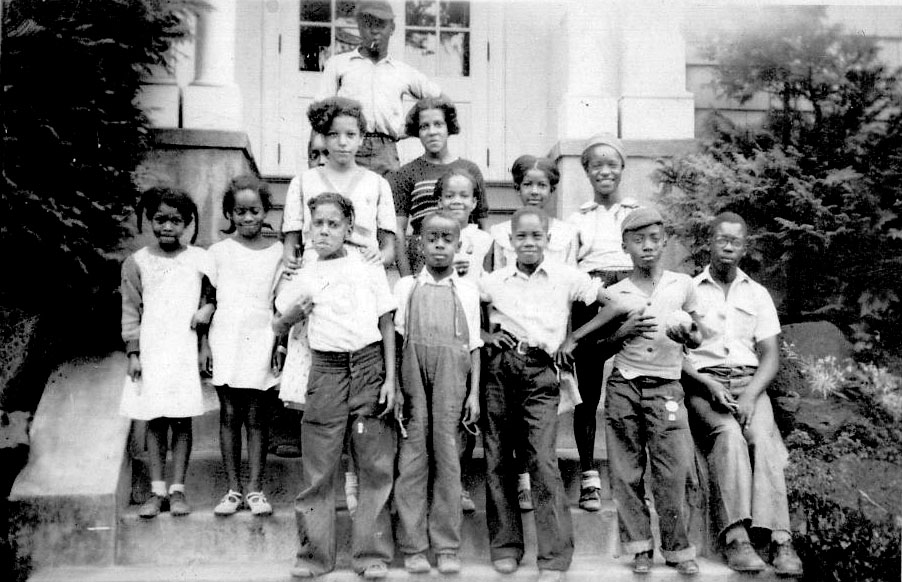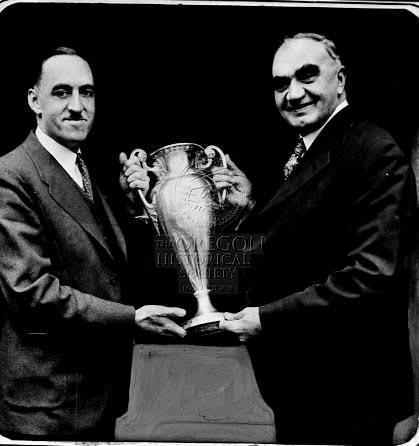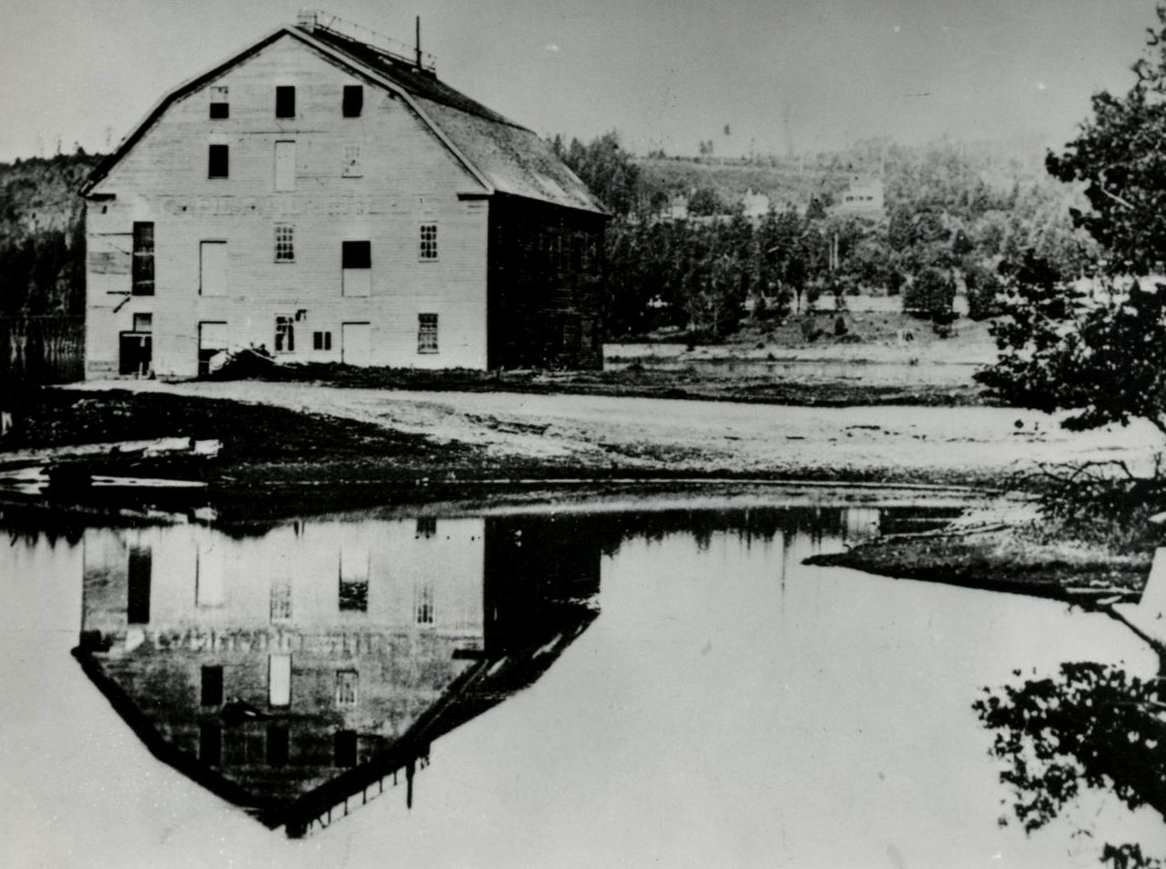On April 19, 1977, when Hurtis and Dorothy Bishop Butler Hadley opened the Milwaukie Pastry Kitchen, they became the owners of the first Black-owned business in the City of Milwaukie and the first Black-owned bakery in the State of Oregon. For eight years, Hurtis Hadley arrived early in the morning to bake and decorate pastries. Dorothy Hadley worked the counter, greeting customers who walked through the door over a rug decorated with the bakery’s slogan, “Put a Little Soul in your Roll.”
Dorothy Bishop, born on March 7, 1942, and Hurtis Mixon Hadley, born on December 2, 1942, were children living in Vanport when the Columbia River destroyed the city on Memorial Day 1948. They married about fifteen years later, on February 15, 1962. Hurtis Hadley worked at the Aladdin Restaurant and was a baker’s helper at the Bohemian bakery in Kienow's Food Stores. In 1967, he became the first Black person in Oregon to become a journeyman baker as an employee of the Albertsons Corporation, where he was the company’s first Black bakery manager and bakery trainer.
In 1976, Hadley learned that he was a top choice to become the bakery merchandiser for Albertsons’ stores in Oregon but that he would not be considered because some Oregonians “would not accept a Black man” in a position of authority. Within a few months, he had left Albertsons to work for small, independent bakeries in Hillsboro and Portland. Dorothy Hadley had graduated from the Hollywood College of Beauty in Portland but had only been able to find work as a shampoo girl, so she found a job as a “demo girl” at conventions, grocery stores, and events around the city.
It wasn’t long before Hurtis Hadley learned from a representative for Oscar Luxe, a local bakery supplies company, that the owner of the Milwaukie Pastry Kitchen was looking for a couple to purchase the business. With Dorothy’s customer service training and Hurtis’s baking experience, they decided to purchase the business at 10607 Southeast Main in Milwaukie, nine miles south of their home in Portland.
For weeks before the grand reopening of the Pastry Kitchen in April 1977, the Hadleys ran ads in local newspapers, and Carl Dixon, the previous owner, spread the news in the community. Of the 17,931 people in Milwaukie in 1980, only 72 were African American, so the Hadleys knew that most of their potential customers would be white. "Not everyone was pleased to have an accomplished black couple in their midst at the time,” Hurtis Hadley told the Portland Observer in June 2014, “or black people at all in the mostly white town," But once the bakery opened, Milwaukie welcomed them. On “day one we’re in the shop and got all these flowers,” Hurtis remembered in his oral history. “Different businesses throughout the community had sent them to…welcome us to the community, and lo and behold, we had instant business.”
In 1980, the Pastry Kitchen introduced Cake on Wheels, an idea the couple got from a New Yorker who called to order a banana whipped-cream cake. Her mother lived in a care facility, and Carl Dixon had delivered a cake to her every year on her birthday. The Hadleys loved the idea and adopted it for patrons who had special occasions to celebrate, with Hurtis wearing a top hat and tails to deliver the cakes in style.
Cake on Wheels helped the business stand out, but it was the Hadleys’ baking that kept customers coming back. Dorothy Hadley prided herself on her sweet potato pie. A section of her cookbook, Stories to Laugh About, provides recipes for the bakery’s most popular items: pink champagne cake (popular for birthdays), a New York cheesecake recipe that came from a chef during a trip to New York, and the banana whip cream cake that was inspired by the cake Hurtis made at the Bohemian.
As a Black family living in Portland, the Hadleys faced some challenges. During the 1960s, for example, Dorothy Hadley worried about her husband going to work at the grocery store early in the morning, “That’s when the police were still picking up Black people,” she remembered, “just because [they] were out.” After they opened up the bakery in Milwaukie, their oldest son went to the bakery with his father before school as a safety precaution. Once, a bank manager accused Hurtis Hadley of robbing a bank near the bakery. He went into the bakery and told Dorothy Hadley that her husband had just robbed a local bank, while she knew he had just gone out for baking supplies. When Dorothy told him what had happened, he went down to the bank and confronted the man, who claimed he had “made a mistake.” Recognizing the racial profiling that had taken place, Hurtis replied, “Well, I guess we all look alike, don’t we?” The next day, Dorothy received as an apology from the bank manager a bouquet of roses, which she said she “promptly threw in the trash.”
In 1981, four years into their business, the Clackamas Town Center opened near Happy Valley, southeast of Portland, pulling business away from Milwaukie and the Pastry Kitchen. When the landlord raised the rent on their building, the Hadleys decided to close the business, and the Milwaukie Pastry Kitchen closed its doors for good in 1985.
Dorothy Hadley took her skills to AARP Foundation ExperienceCorps, a community-based volunteer program, where she wrote and directed two Black history plays for students and taught children baking skills at the Ronald McDonald House. Hurtis Hadley returned to work for Albertsons, before moving on to Safeway and then Franz Family Bakeries and Oroweat. He retired in 1997.
The couple and the Pastry Kitchen are memorialized in murals on Martin Luther King Boulevard in Portland and in Milwaukie. In 2014, the Pastry Kitchen was featured in an Oregon Historical Society exhibit, and in 2023 the Hadleys’ story was included in another exhibit, Our Unfinished Past: The Oregon Historical Society at 125.
-
![]()
Mural of Dorothy and Hurtis Hadley on Martin Luther King Jr. Blvd in Portland.
Courtesy Hurtis and Dorothy Hadley
-
![]()
Newspaper clipping from The Community Press of Grand re-opening of Milwaukie Pastry Kitchen, 1977.
Oregon Historical Society Research Library, Digital Collections, Milwaukie Pastry Kitchen Photographs, OrgLot1311_F2_002 -
![]()
Clipping from an unknown news publication about Hurtis Hadley and his bakery, c.1982.
Oregon Historical Society, Digital Collections, Milwaukie Pastry Kitchen photographs, OrgLot1311_F2_001 -
![]()
Hadley Family at the Milwaukie Pastry Kitchen.
Courtesy Hurtis and Dorothy Hadley
-
![]()
Hurtis Hadley constructing a tiered cake, 1979.
Oregon Historical Society Research Library, Digital Collections, Milwaukie Pastry Kitchen photographs and news clippings, OrgLot1311_F1_002 -
![]()
Milwaukie Pastry Kitchen business sign, c1970s.
Oregon Historical Society Museum Collection, 2014-22.4.1 -
![]()
Dorothy Hadley at pastry counter at Milwaukie Pastry Kitchen.
Courtesy Hurtis and Dorothy Hadley
-
![Cake decorated by Hurtis Hadley.]()
Anniversary cake for the Bank of Milwaukie, c.1980.
Cake decorated by Hurtis Hadley. Oregon Historical Society, Digital Collections, Milwaukie Pastry Kitchen photographs, OrgLot1311_F1_004 -
![]()
-
![Cake decorated by Hurtis Hadley.]()
Birthday cake for Red's Coach Inn, c.1980.
Cake decorated by Hurtis Hadley. Oregon Historical Society Research Library, Digitals Collections, Milwaukie Pastry Kitchen photographs, OrgLot1311_F1_003 -
![]()
Milwaukie Pastry Kitchen business sign, c.1970s.
Oregon Historical Society Museum Collection, 2014-22.4.2
Related Entries
-
![Black People in Oregon]()
Black People in Oregon
Periodically, newspaper or magazine articles appear proclaiming amazeme…
-
![Davidson Baking Company (Sunbeam Bakery)]()
Davidson Baking Company (Sunbeam Bakery)
Coffee cake, donuts, butterhorns, cinnamon rolls, snack cakes, and, of …
-
![Milwaukie]()
Milwaukie
Located at the northern edge of Clackamas County and on the east bank o…
-
![Rose Garbow Naftalin (1898–1998)]()
Rose Garbow Naftalin (1898–1998)
Rose Naftalin was a restauranteur and cookbook author in Portland and t…
Map This on the Oregon History WayFinder
The Oregon History Wayfinder is an interactive map that identifies significant places, people, and events in Oregon history.
Further Reading
“Oregon Historical Society Exhibit Features First Black-owned Bakery.” Northwest Labor Press, June 4, 2014.















